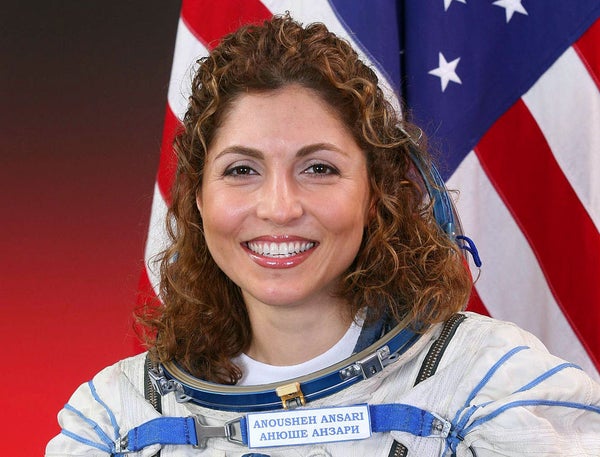This article was published in Scientific American’s former blog network and reflects the views of the author, not necessarily those of Scientific American
America’s universities are the best in the world. The quality of the students, faculty, teaching, infrastructure, the commitment to academic freedom, and the extraordinary research opportunities attract the best and brightest people from around the globe to the United States. And our nation is far better for it.
Last year six recipients of the Nobel Prize were working at American universities: the three winners of the prize in physics, the two winners in economics, and one of the three winners in chemistry. All six were foreign born. Bob Dylan was the only Nobel laureate last year born in the United States. And 2016 was no fluke. In all, 42 percent of the Nobel Prizes awarded between 1901 and 2015 went to individuals working/living in the United States, and nearly one third of those recipients were born outside the U.S. Our ability to attract the world’s leading scientists to our universities has helped us maintain global leadership in innovation and discovery, a tremendous component of our economic strength and national security.
But it is not just faculty that have come to U.S. universities to pursue their research. We also have been the destination of choice for outstanding graduate and undergraduate students from around the world. At Stony Brook University and many other top research universities, the majority of our graduate students in STEM fields are international students. Many of these talented students stay on after their education and become contributors to innovation and economic development in our country. The economic impact of international students on the U.S. economy was nearly $36 billion dollars in 2015, with $4 billion in New York State alone. Just on my campus, roughly 10 percent of the startup companies at our business incubator are led by foreign born scientists with much of the workforce coming from recent international doctoral students. And the impact of international students on our campus is not just economic, they add to the diversity of culture and ideas on our campus, broadening the experience of every student at Stony Brook University and better preparing them for the 21st century world.
On supporting science journalism
If you're enjoying this article, consider supporting our award-winning journalism by subscribing. By purchasing a subscription you are helping to ensure the future of impactful stories about the discoveries and ideas shaping our world today.
But now this is all at risk. New immigration policies, coupled with xenophobic rhetoric and actions both before and after the election, are undoing the compact between the United States and those seeking opportunity from around the world. The first executive order nearly resulted in the deportation of the President of Stony Brook’s Graduate Student Organization, a former Fulbright Scholar, who had been studying in the United States for 10 years. The campus was dramatically unsettled, with an initial loss of the sense of security and welcoming inclusive environment that we have worked so hard to establish.
And the impact is not just local. Research universities are seeing an immediate effect on the recruitment of international faculty and students. Stony Brook University has seen a decline of roughly 10 percent in international applications for graduate school this year, a figure that seems to be on a par with the decline seen at other institutions. The reasons for these declines may not be solely based on anti-immigration policies and rhetoric, but some accepted applicants to Stony Brook, especially from countries targeted by the first Executive Order, have stated explicitly that they will choose a Canadian or Australian university instead, based on the uncertainty of U.S. immigration policy and the fact that they are being singled out based on their country of origin, not on their academic credentials. And the recent suspension of expedited processing of H1-B visas, which is of significant concern to the Technology Sector, could also have a chilling effect on the ability of Universities to attract outstanding international faculty and scientists to help sustain our research and educational missions.
Rather than creating pathways to citizenship like DACA, the anti-immigration rhetoric, and now acts of violence against immigrants to the United States, is sending a message to the world that the United States, and by implication, our universities, no longer will be a welcoming and safe environment for international students and faculty. “They” should look elsewhere, and, unfortunately for us, they will.
It may not be too late to make this right. Policy needs to be based on facts, not fear. Recent data from Homeland Security on the relative risks posed by recent immigrants to the U.S. vs those who have been residents for years should be incorporated into our approach to security. Continuing DACA and moving to a policy that “staples a Green Card” on to the diploma of graduates of U.S. universities would go a long way to helping address our workforce issues in technology and reassuring the world that we do still want best and the brightest to study and work in the United States of America.
Our embrace of international students and faculty has given the U.S. a leg up on all other countries in the race to lead in innovation and discovery. We augment our extraordinary homegrown talent with future leaders from around the world. But time is short, the new policies and rhetoric are taking their toll, significant damage is being done, and if we surrender our global edge in innovation and discovery, we may never get it back.
